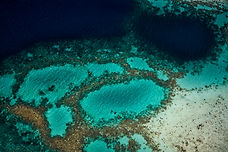top of page

Pacific Conservation Database
Pew Charitable Trusts: Mainstreaming gender and human rights-based approaches into coastal fisheries management and development for improved food security and livelihoods for local communities
PIRT Member organisations
Wildlife Conservation Society (WCS), Pacific Community (SPC)
Other partner organisations
James Cook University
WorldFish
Countries of implementation
Fiji, Solomon Islands, Vanuatu
About
Documented traditional and current gender equity and human rights-based approaches (HRBA) to coastal fisheries management and development in Pacific to improve effectiveness; Developed framework to evaluate how effectively gender equity and HRBA have been addressed in coastal fisheries management and development in the Pacific.
Framework Action Tracks
02 – Behaviour change for nature conservation through heritage and cultural expressions, 19 – Science and traditional knowledge for target-setting and monitoring, 20 – Governance that works for nature conservation
Status
Completed
bottom of page
